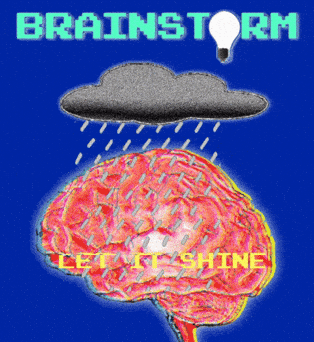- Take A Break!
- Posts
- Mind-Body Connection
Mind-Body Connection
What is it & how does it work
The clocks have changed, which means November is here. To round off the year, over the next eight weeks, I will share with you practical, applicable and bull-shit-free wellness information that will genuinely influence your life for the better if put to good use. This week's topic of conversation? The Mind-Body Connection.

It's More Than Just a Buzzword
The mind-body connection is more than just a philosophical concept. It's a dynamic interplay of energy and biology that shapes our health and experiences. As science continues to explore this intricate relationship, one thing is clear: energy is at the heart of it all.
The Power of Energy
Martin Picard, a professor of behavioural medicine at Columbia University, recently delivered a TEDxCambridge talk titled "What Powers The Mind-Body Connection?" In it, he delves into the profound relationship between energy, communication, and our overall health.
Throughout human history, energy has been a driving force. From the discovery of fire that propelled Homo sapiens to the forefront of evolution to the Industrial Revolution powered by electricity, energy has been the catalyst for progress. Today, in our interconnected digital age, energy powers the devices that keep us connected globally.
The Science Behind the Connection
Dr. Candace Pert, a neuroscientist and pharmacologist, made groundbreaking discoveries in the 1970s about molecules called neuropeptides. In her book, "Molecules of Emotion," she explains how these molecules are the physical representation of our emotions and play a crucial role in our overall health.
Neuropeptides are found throughout our body, not just in the brain. They act as messengers, transmitting information between the mind and body. When you feel an emotion, these molecules are released, affecting your physical state. Have you ever felt your heart race when you're anxious? Or a pit in your stomach when you're sad? That's the mind-body connection in action, facilitated by these tiny molecules.
Neurotransmitters: The Body's Messengers
Neurotransmitters are chemicals that transmit signals from a neuron to a target cell across a synapse. They play a pivotal role in our mood and overall well-being. Here's a quick breakdown of a few key players:
Serotonin: Often called the "feel-good" neurotransmitter. It regulates mood, appetite, and sleep. Natural ways to boost it? Exposure to sunlight and physical activity.
Dopamine: Associated with pleasure and reward. It motivates us to take action towards goals. Foods rich in tyrosine, like bananas and avocados, can help increase dopamine levels.
GABA (Gamma-Aminobutyric Acid): It's the body's primary inhibitory neurotransmitter, which calms nerve activity. This is crucial for relaxation. Foods rich in magnesium, like spinach and nuts, can support GABA production.
Gut-Brain Axis: More Than Just a Gut Feeling
Our gut, often dubbed the "second brain," plays a pivotal role in our overall well-being. This intricate system called the enteric nervous system, consists of over 100 million neurons lining our gastrointestinal tract. Why is this significant?
Well, the gut doesn't just process the food we eat; it also communicates directly with our brain through the vagus nerve, one of the longest nerves in the body. This bi-directional communication highway means our emotional and mental states can influence our gut health and vice versa. Have you ever felt butterflies when nervous or experienced stomach issues during stressful times? That's the gut-brain axis in action.
Stimulating the Vagus Nerve: The Pathway to Relaxation
The vagus nerve, as we've touched upon, is a vital connection between the brain and various parts of the body, including the gut. Stimulating it can activate the parasympathetic nervous system, responsible for our 'rest and digest' responses.
Deep Breathing: Slow, deep breaths can stimulate the vagus nerve. Try inhaling for a count of four, holding for a count of four, and exhaling for a count of four. This can reduce stress and promote a sense of calm.
Singing and Humming: These activities naturally stimulate the vagus nerve due to the vibrations they produce. All the more reason to practice your singing in the shower.
Gargling: Another simple technique is to gargle with water. This action stimulates the muscles of the palate that are connected to the vagus nerve.
Yoga and Meditation: Both practices increase vagal tone, specifically when incorporating specific breathing techniques, promoting relaxation and reducing stress.
Laughter: Genuine belly laughter is a great way to stimulate the vagus nerve. It's true what they say about laughter being the best medicine!
By incorporating these practices into your daily routine, you can harness the power of the vagus nerve, promoting relaxation, improving gut health, and supporting overall well-being. Next week, we will explore the gut-brain connection in greater depth and learn how certain foods can boost mood, reduce anxiety, and enhance cognitive function.
Bewaved Self-Care Session - Tonight @ 7 PM.
As we've journeyed through the intricacies of the mind-body connection today, it's only fitting to put this newfound knowledge into practice. In this evening's self-care session, we will focus on the very heart of this connection: the vagus nerve.
Using intentional movement, guided meditation, and specific breath work techniques, we'll stimulate the vagus nerve. This isn't just about relaxation (though that's a bonus); it's about deepening our understanding and experience of the profound link between our minds and bodies.
To get involved, click the button below to upgrade to the membership. For those already signed up, keep scrolling for all the info you need.
See you later or see you next week ❤️
Subscribe to Premium to read the rest.
Become a paying subscriber of Premium to get access to this post and other subscriber-only content.
Already a paying subscriber? Sign In.
A subscription gets you:
- • A Bespoke Personalised Training Program ✅
- • Weekly Check-Ins ✅
- • On-Demand Yoga, Meditation & Breathwork Classes ✅
- • 24/7 Direct Q&A Access via Whatsapp ✅